SINGAPORE’S MEDICAL CLOUD AI REVOLUTION: TRANSFORMING HEALTHCARE THROUGH DIGITAL INNOVATION
INTRODUCTION: THE DAWN OF A NEW HEALTHCARE ERA
Singapore stands at the forefront of a revolutionary transformation in healthcare delivery, where artificial intelligence meets cloud computing to create unprecedented opportunities for medical innovation. As one of Asia’s most technologically advanced nations, Singapore has positioned itself as a global leader in medical cloud AI, leveraging cutting-edge technologies to address the challenges of an aging population, rising healthcare costs, and the growing complexity of medical care.
The convergence of cloud computing and artificial intelligence in Singapore’s healthcare sector represents more than just technological advancement—it embodies a fundamental shift toward precision medicine, predictive healthcare, and personalized patient care. With the government’s strategic investment of SGD $200 million over five years and the establishment of comprehensive digital health platforms, Singapore is creating a blueprint for the future of healthcare that other nations are eagerly studying and adopting.
Advanced cloud computing infrastructure powering healthcare AI systems MindInventory
THE FOUNDATION: SINGAPORE’S DIGITAL HEALTH INFRASTRUCTURE
NATIONAL HEALTH TECH AGENCY: SYNAPXE LEADING THE CHARGE
At the heart of Singapore’s medical cloud AI revolution stands Synapxe, the national health tech agency that orchestrates the country’s digital healthcare transformation. Established as the central driving force behind healthcare technology integration, Synapxe has developed and deployed several groundbreaking platforms that are reshaping how medical professionals deliver care across the island nation.
The agency’s comprehensive approach encompasses everything from data analytics and AI model development to cloud-based platforms that serve Singapore’s entire public healthcare system. Through strategic partnerships with global technology leaders and local innovation hubs, Synapxe has created an ecosystem that fosters continuous innovation while maintaining the highest standards of security and reliability required in healthcare environments.
HEALIX: THE CLOUD-BASED ANALYTICS POWERHOUSE
One of Singapore’s most significant achievements in medical cloud AI is the deployment of HEALIX, a comprehensive cloud-based analytics platform that serves as the backbone of the country’s public healthcare data infrastructure. Launched in 2024, HEALIX represents a paradigm shift in how healthcare institutions access, analyze, and utilize vast amounts of medical data for improved patient outcomes.
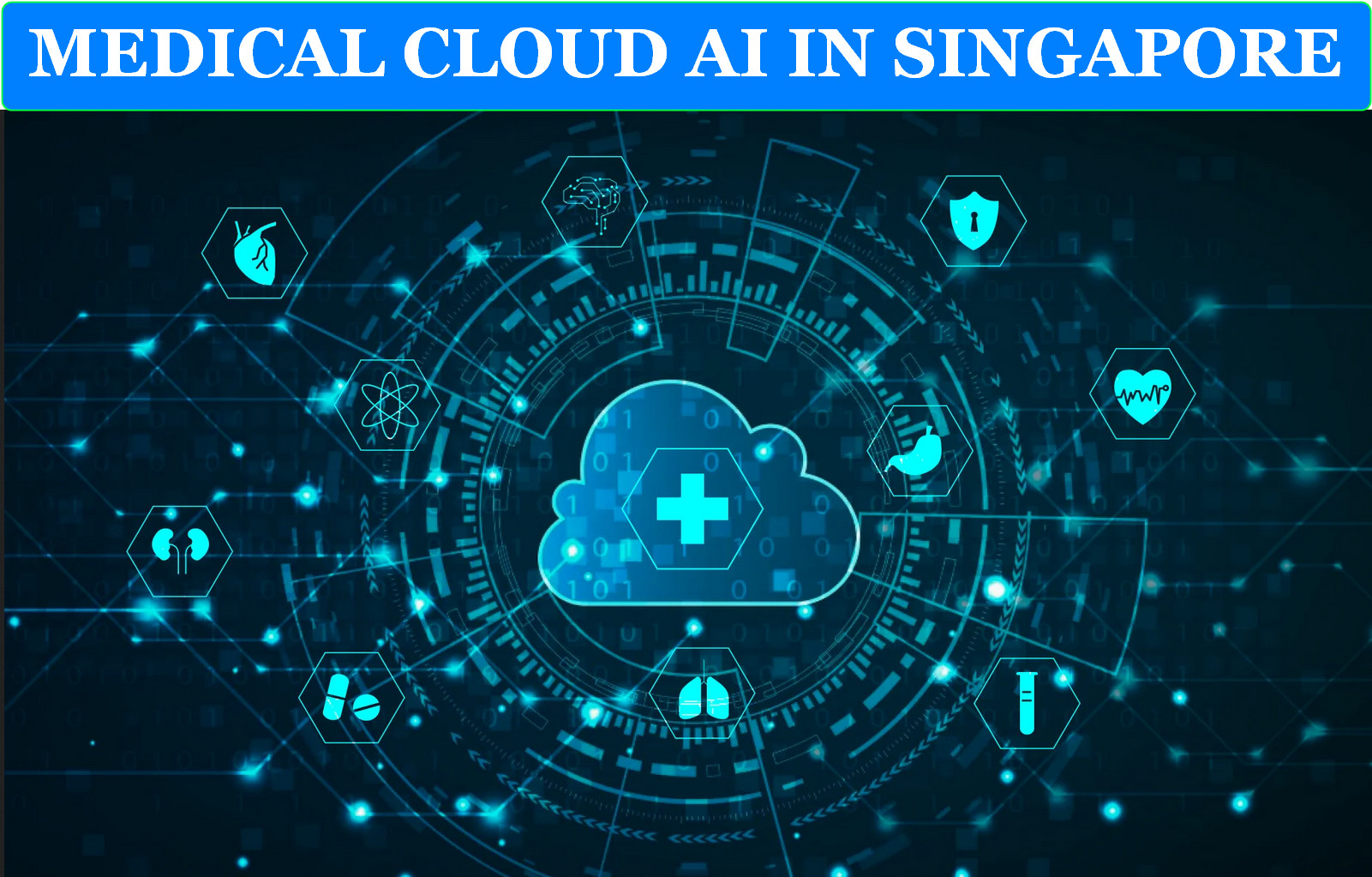
HEALIX cloud-based analytics platform transforming healthcare data management Tech Coffee House
HEALIX enables healthcare professionals to conduct sophisticated analytics projects with unprecedented speed and accuracy. The platform’s cloud-native architecture allows for seamless scaling, ensuring that as Singapore’s healthcare system grows and evolves, the underlying technology infrastructure can adapt and expand accordingly. From June 2024, all public healthcare entities have been systematically onboarded to HEALIX, creating a unified data ecosystem that enhances collaboration and knowledge sharing across institutions.
The platform’s advanced capabilities extend beyond simple data storage and retrieval. HEALIX incorporates machine learning algorithms that can identify patterns in patient data, predict health outcomes, and provide actionable insights that support clinical decision-making. This integration of cloud computing with artificial intelligence exemplifies Singapore’s commitment to leveraging technology for tangible improvements in patient care quality and operational efficiency.
REVOLUTIONARY AI APPLICATIONS IN MEDICAL PRACTICE
AIMSG: THE MEDICAL IMAGING AI PLATFORM FOR MEDICAL CLOUD AI IN SINGAPORE
Singapore’s AI Medical Imaging Platform (AimSG) represents a groundbreaking approach to integrating artificial intelligence into radiology and medical imaging workflows. Conceptualized as the region’s first common AI medical imaging platform, AimSG functions as an “app store” for medical imaging professionals, providing access to a diverse range of AI models from various vendors through a single, standardized interface.
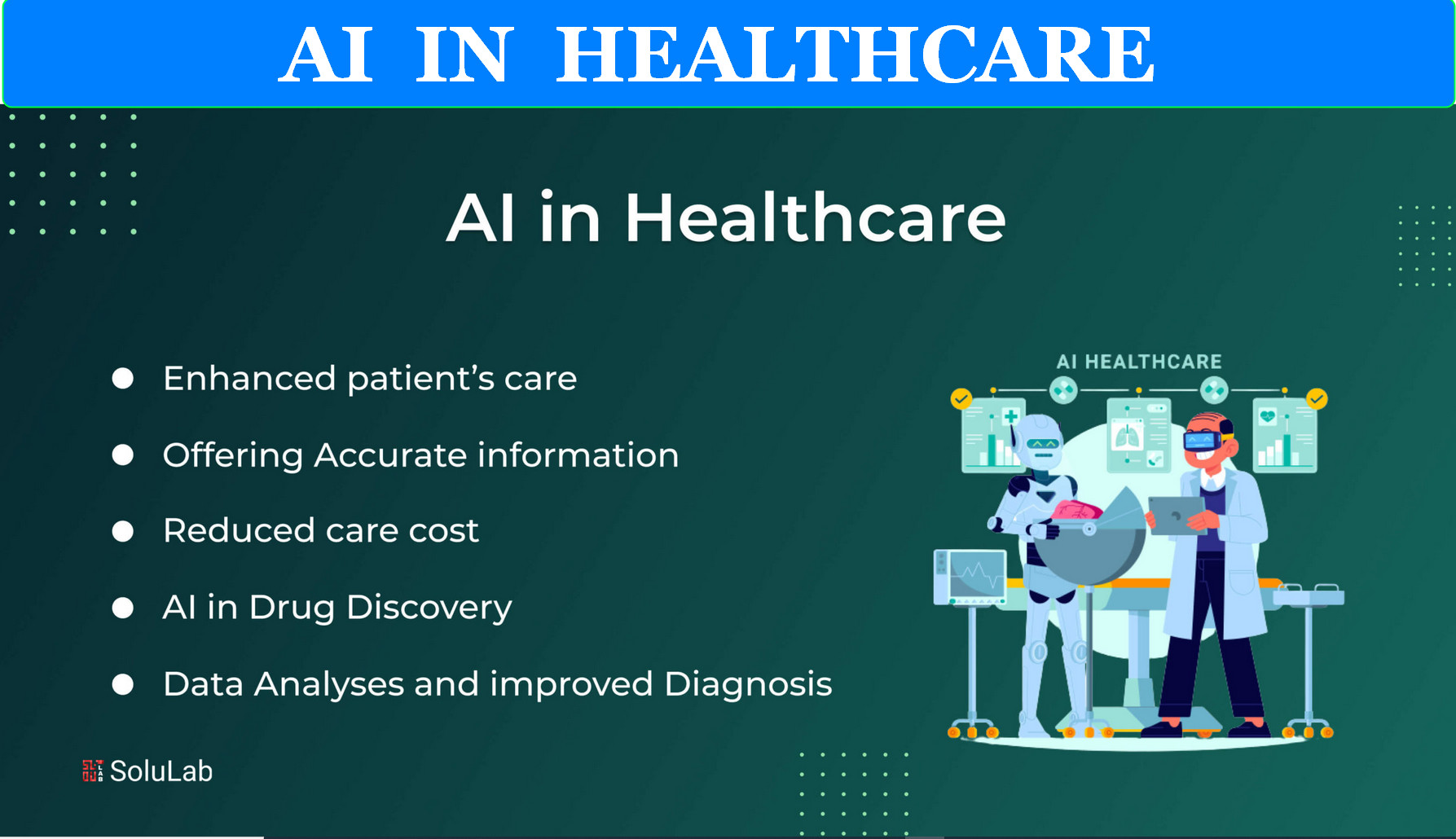
AI-powered medical imaging transforming diagnostic accuracy SoluLab
The platform’s vendor-neutral approach ensures that healthcare institutions are not locked into proprietary systems, promoting innovation and cost-effectiveness while maintaining interoperability across different medical imaging environments. AimSG has already demonstrated its value through the successful deployment of chest X-ray AI models at major hospitals, including Changi General Hospital and Singapore General Hospital, where the technology assists radiologists in quickly identifying abnormalities and prioritizing urgent cases.
The impact of AimSG extends beyond simple automation. By augmenting medical imaging workflows with AI capabilities, the platform helps improve clinical outcomes and productivity. AI models can rapidly triage urgent cases, ensuring that critical conditions receive immediate attention from medical professionals. Additionally, the technology serves as an additional layer of quality assurance, functioning as a digital peer reviewer that helps ensure diagnostic accuracy while reducing the workload on human radiologists.
AGENTIC AI: THE NEXT FRONTIER
Singapore is pioneering the exploration of agentic AI in healthcare—a revolutionary approach that goes beyond traditional AI applications by incorporating autonomous decision-making capabilities and goal-directed behavior. Unlike conventional AI systems that simply process data and provide recommendations, agentic AI can adapt to new situations, interact dynamically with its environment, and make complex decisions independently.
According to Andy Ta, Synapxe’s chief data officer and director of Data Analytics and AI, “One area of particular interest in the coming years is the use of agentic AI, which has the potential to revolutionise healthcare by performing tasks autonomously with decision-making capabilities and goal-directed behaviour. This innovative approach allows AI systems to adapt to new situations and interact dynamically with their environment.”
Futuristic healthcare setting with AI-powered medical technologies AI IoT Talk
The implementation of agentic AI in Singapore’s healthcare system promises to enhance decision-making processes, improve coordination between different healthcare providers, and ultimately achieve better outcomes across large-scale healthcare systems. This technology could revolutionize areas such as treatment protocol optimization, resource allocation, and personalized medicine delivery.
GOVERNMENT INVESTMENT AND STRATEGIC VISION
THE S$200 MILLION DIGITAL HEALTH INITIATIVE
The Singapore government’s commitment to medical cloud AI is demonstrated through its substantial S$200 million investment over five years, announced by the Ministry of Health in October 2024. This funding represents a “centralised push” to scale AI integration into system-wide, national healthcare projects, ensuring that technological innovations translate into measurable improvements in patient care and operational efficiency.
The investment strategy focuses on several key areas:
GENERATIVE AI IMPLEMENTATION: The government aims to promote the uptake of generative AI tools to automate repetitive and time-consuming tasks, such as documentation and summarization of medical records. A significant milestone is the planned rollout of a genAI-powered solution for automating health record updates by the end of 2025.
PROFESSIONAL DEVELOPMENT AND TRAINING: Recognizing that successful AI implementation requires widespread adoption by healthcare professionals, the investment includes comprehensive training programs and user-friendly platforms designed to build confidence and competency in AI tool utilization.
INFRASTRUCTURE DEVELOPMENT IN MEDICAL CLOUD AI IN SINGAPORE:
A significant portion of the funding is allocated to developing and maintaining the cloud infrastructure necessary to support large-scale AI applications across Singapore’s healthcare system.
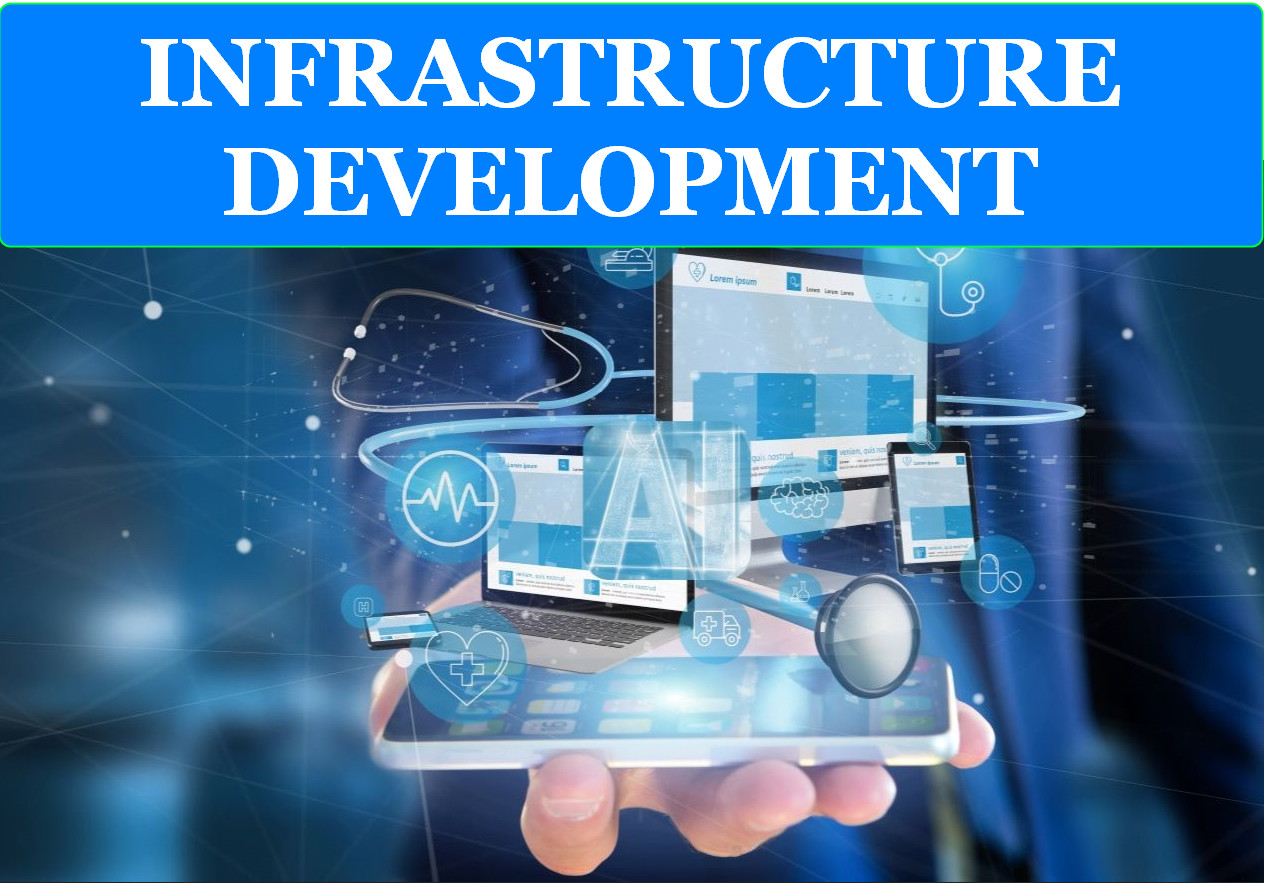
Singapore’s comprehensive approach to AI-driven healthcare transformation OpenGov Asia
HEALTHIER SG: A COMPREHENSIVE DIGITAL HEALTH STRATEGY
Singapore’s Healthier SG initiative represents a holistic approach to population health management that leverages medical cloud AI to shift from reactive treatment to proactive prevention. This comprehensive strategy integrates digital health tools, AI-powered analytics, and cloud-based platforms to create a seamless healthcare ecosystem that addresses the needs of Singapore’s aging population.
The Healthier SG framework encompasses several key components:
POPULATION HEALTH ANALYTICS: Using cloud-based AI systems to analyze population health trends, identify risk factors, and develop targeted intervention strategies that can prevent diseases before they manifest.
PERSONALIZED CARE PATHWAYS: Leveraging AI algorithms to create individualized healthcare plans that consider each patient’s unique risk profile, genetic predispositions, and lifestyle factors.
INTEGRATED CARE COORDINATION: Utilizing cloud platforms to ensure seamless communication and coordination between different healthcare providers, from general practitioners to specialists and allied health professionals.
INNOVATION ECOSYSTEM AND STARTUP LANDSCAPE
THRIVING MEDTECH STARTUP ENVIRONMENT
Singapore’s commitment to medical cloud AI has created a vibrant ecosystem for healthcare technology startups and established companies alike. The city-state’s strategic location, supportive regulatory environment, and access to advanced digital infrastructure have attracted numerous MedTech companies specializing in AI-powered healthcare solutions.
Medical professionals utilizing advanced analytics and AI technologies BioSpectrum Asia
Leading companies in Singapore’s medical AI landscape include:
LUCENCE: A pioneer in AI-powered liquid biopsy technologies that use machine learning algorithms to detect cancer biomarkers in blood samples, enabling earlier and more accurate cancer diagnosis.
EM2AI: Developing the EM2Clinic platform, which uses artificial intelligence to streamline diagnostics and automate medical charting processes, particularly in dental care applications.
HELF AI: Creating ChatGPT-like interfaces specifically designed for health and wellness applications, enabling more intuitive interactions between patients and healthcare systems.
BIOFOURMIS: Specializing in AI-powered remote patient monitoring and predictive analytics that help healthcare providers intervene before medical conditions deteriorate.
INTERNATIONAL COLLABORATION AND KNOWLEDGE EXCHANGE
Singapore’s position as a global hub for medical cloud AI is reinforced by its active participation in international collaborations and knowledge exchange programs. The country regularly hosts major conferences and events, such as IMAGINE AI, which brings together global leaders in healthcare and artificial intelligence to share insights and foster innovation.
The IMAGINE AI conference, held annually at Marina Bay Sands, represents the largest global gathering focused on shaping the future of healthcare through AI innovations. This event showcases Singapore’s latest developments in medical cloud AI while facilitating partnerships and collaborations with international organizations and research institutions.
CLINICAL APPLICATIONS AND REAL-WORLD IMPACT
DIAGNOSTIC EXCELLENCE THROUGH AI INTEGRATION
Singapore’s medical cloud AI initiatives have demonstrated remarkable success in improving diagnostic accuracy and efficiency across various medical specialties. The integration of AI-powered diagnostic tools with cloud-based platforms has enabled healthcare professionals to access sophisticated analytical capabilities that were previously available only in specialized research settings.
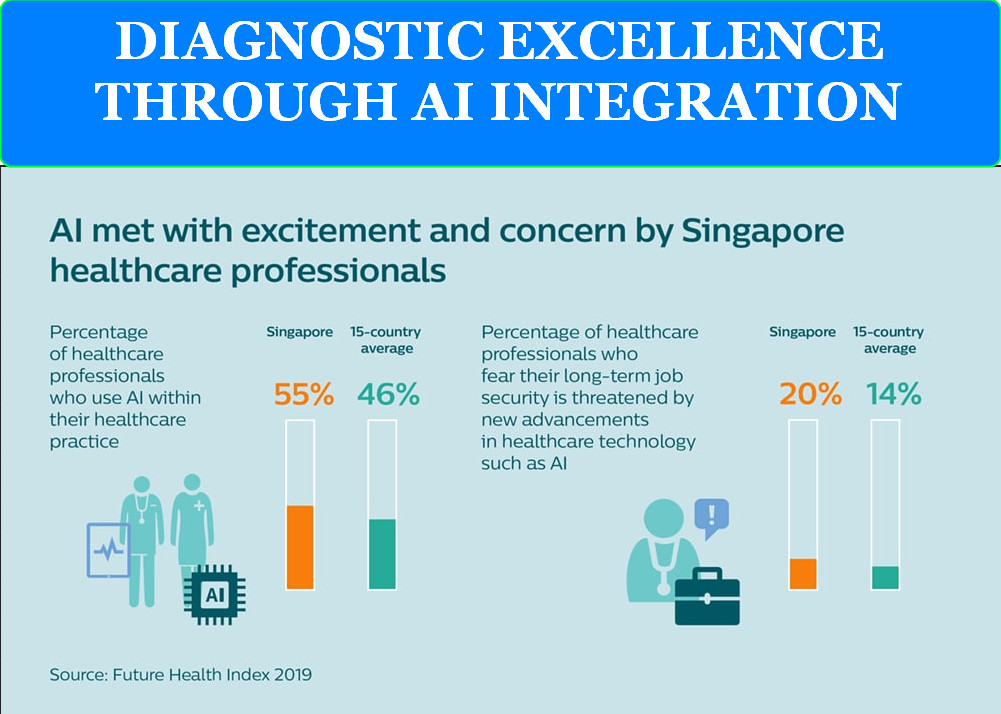
AI-powered precision diagnosis transforming healthcare delivery Philips
Radiology and Medical Imaging: AI algorithms deployed through the AimSG platform have significantly improved the speed and accuracy of radiological diagnoses. Chest X-ray AI models can identify potential abnormalities within seconds, allowing radiologists to prioritize urgent cases and reduce diagnostic errors.
Pathology and Laboratory Medicine: Cloud-based AI systems are being used to analyze pathology slides and laboratory results, providing pathologists with additional insights and helping to standardize diagnostic criteria across different institutions.
Emergency Medicine: AI-powered triage systems help emergency departments quickly assess patient severity and allocate resources more effectively, reducing waiting times and improving patient outcomes.
PREDICTIVE HEALTHCARE AND EARLY INTERVENTION
One of the most promising applications of Singapore’s medical cloud AI infrastructure is in predictive healthcare and early intervention strategies. By analyzing vast amounts of patient data stored in cloud-based systems, AI algorithms can identify patterns that indicate increased risk for various health conditions, enabling healthcare providers to intervene before serious complications develop.
The National University Hospital’s AI-driven digestive center exemplifies this approach, integrating three AI systems that work together to enable early detection and diagnosis of stomach cancers. This comprehensive approach combines medical imaging, laboratory data, and patient history to provide a more complete picture of patient health and risk factors.
CHRONIC DISEASE MANAGEMENT
Singapore’s aging population faces increasing challenges related to chronic diseases such as diabetes, cardiovascular disease, and respiratory conditions. Medical cloud AI platforms are being deployed to support comprehensive chronic disease management programs that combine remote monitoring, predictive analytics, and personalized treatment recommendations.
AI algorithms can analyze continuous streams of data from wearable devices, electronic health records, and patient-reported outcomes to identify early signs of disease progression or complications. This proactive approach enables healthcare providers to adjust treatment plans promptly, potentially preventing hospitalizations and improving quality of life for patients with chronic conditions.
DATA SECURITY AND PRIVACY CONSIDERATIONS
ROBUST SECURITY FRAMEWORK
Singapore’s medical cloud AI infrastructure is built upon a foundation of robust security measures designed to protect sensitive patient information while enabling innovative healthcare applications. The country has implemented comprehensive data protection regulations and technical safeguards that ensure patient privacy is maintained throughout the data lifecycle.
Key security measures include:
End-to-End Encryption: All patient data transmitted between healthcare institutions and cloud platforms is protected using advanced encryption technologies that meet international healthcare security standards.
Access Controls and Authentication: Multi-factor authentication and role-based access controls ensure that only authorized healthcare professionals can access patient information, with detailed audit trails tracking all data access activities.
Data Anonymization and De-identification: Advanced techniques are employed to remove personally identifiable information from datasets used for AI training and research, while preserving the clinical value of the data.
Regulatory Compliance: Singapore’s medical cloud AI platforms comply with local and international healthcare data protection regulations, including provisions for data sovereignty and cross-border data transfer restrictions.
Ethical AI Implementation
Singapore has established comprehensive ethical guidelines for AI implementation in healthcare, ensuring that technological innovations serve the best interests of patients and society. These guidelines address issues such as algorithmic bias, transparency in AI decision-making, and the need for human oversight in critical medical decisions.
The ethical framework includes provisions for:
Transparency and Explainability: AI systems used in clinical decision-making must be able to provide clear explanations for their recommendations, enabling healthcare professionals to understand and validate AI-generated insights.
Bias Detection and Mitigation: Regular auditing of AI algorithms to identify and address potential sources of bias that could lead to disparate health outcomes for different population groups.
Patient Consent and Control: Ensuring that patients have appropriate control over how their data is used in AI applications and research, with clear options for opting out of data sharing arrangements.
FUTURE DIRECTIONS AND EMERGING TRENDS
NEXT-GENERATION AI TECHNOLOGIES
Singapore continues to explore cutting-edge AI technologies that promise to further revolutionize healthcare delivery. These emerging technologies include:
Federated Learning: This approach enables AI models to be trained across multiple healthcare institutions without centralizing sensitive patient data, promoting collaboration while maintaining privacy and security.
Digital Twins: Creating virtual representations of patients that can be used to simulate treatment outcomes and optimize care pathways before implementing changes in real-world clinical settings.
Quantum Computing Integration: Exploring the potential for quantum computing to solve complex healthcare optimization problems that are beyond the capabilities of classical computing systems.

Advanced AI and digital twin technologies shaping the future of healthcare Hospital Management Asia
REGIONAL LEADERSHIP AND GLOBAL EXPANSION
Singapore’s success in medical cloud AI has positioned the country as a regional leader in healthcare technology innovation. The knowledge and expertise developed through domestic implementations are being shared with other countries in Southeast Asia and beyond, creating opportunities for technology transfer and collaboration.
Several initiatives support this regional leadership role:
Technology Transfer Programs: Singapore is actively sharing its medical cloud AI technologies and best practices with neighboring countries, helping to build regional capabilities in healthcare technology.
Research Collaborations: Joint research projects with international institutions are advancing the state of the art in medical AI while addressing healthcare challenges that transcend national boundaries.
Training and Education: Singapore’s educational institutions are developing specialized programs to train the next generation of healthcare AI professionals, both for domestic needs and for export to other countries.
Sustainable Healthcare Ecosystem
Looking toward the future, Singapore is working to create a sustainable healthcare ecosystem that balances technological innovation with environmental responsibility and cost-effectiveness. This includes:
Green Cloud Computing: Implementing energy-efficient cloud infrastructure that minimizes the environmental impact of large-scale AI computations while maintaining high performance and reliability.
Cost-Effective AI Solutions: Developing AI applications that provide clear return on investment through improved patient outcomes, reduced healthcare costs, and enhanced operational efficiency.
Public-Private Partnerships: Fostering collaborations between government agencies, private companies, and research institutions to share the costs and benefits of healthcare innovation while accelerating the pace of technological advancement.
CONCLUSION: A MODEL FOR GLOBAL HEALTHCARE TRANSFORMATION
Singapore’s comprehensive approach to medical cloud AI represents a model that other countries and healthcare systems can study and adapt to their own contexts. The combination of strategic government investment, robust technical infrastructure, ethical implementation frameworks, and collaborative innovation ecosystems has created a healthcare system that is more efficient, effective, and patient-centered than ever before.
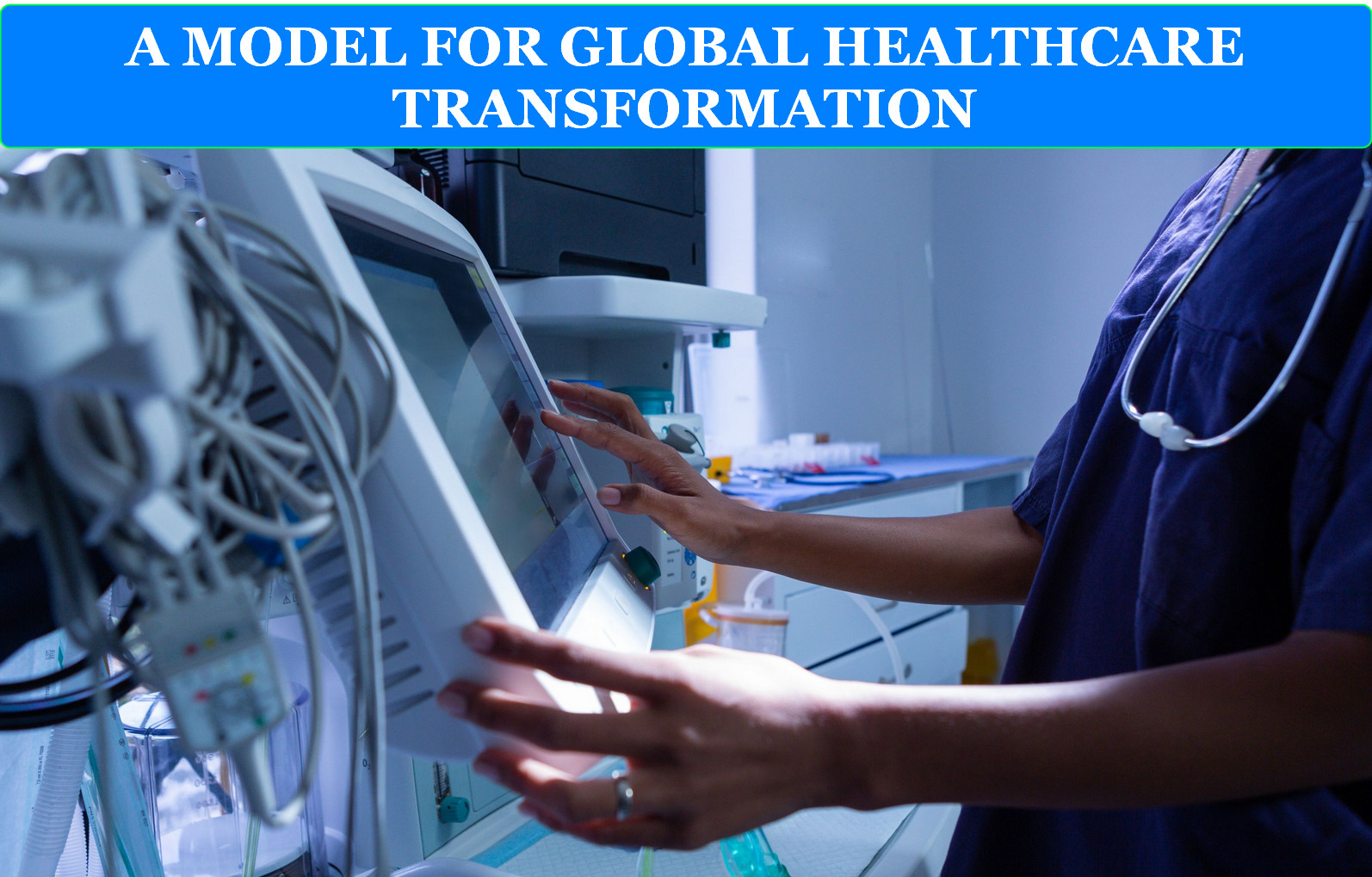
Singapore’s integrated approach to healthcare innovation and technology adoption GovInsider
The success of initiatives like HEALIX, AimSG, and the broader Healthier SG program demonstrates that with proper planning, investment, and execution, medical cloud AI can transform healthcare delivery in ways that benefit patients, healthcare providers, and society as a whole. As Singapore continues to push the boundaries of what is possible with healthcare technology, the lessons learned and innovations developed will undoubtedly influence the future of medicine worldwide.
The journey toward fully realizing the potential of medical cloud AI in Singapore is ongoing, with new developments and breakthroughs emerging regularly. As the country continues to invest in cutting-edge technologies, build partnerships with global innovators, and maintain its commitment to ethical and responsible AI implementation, Singapore is well-positioned to remain at the forefront of the global healthcare transformation for years to come.
Through its pioneering work in medical cloud AI, Singapore has demonstrated that the future of healthcare is not just about treating disease—it’s about preventing illness, optimizing wellness, and creating a healthcare system that truly serves the needs of all citizens. This vision of healthcare transformation, powered by the intelligent application of cloud computing and artificial intelligence, offers hope for addressing some of the most pressing healthcare challenges facing the world today.
